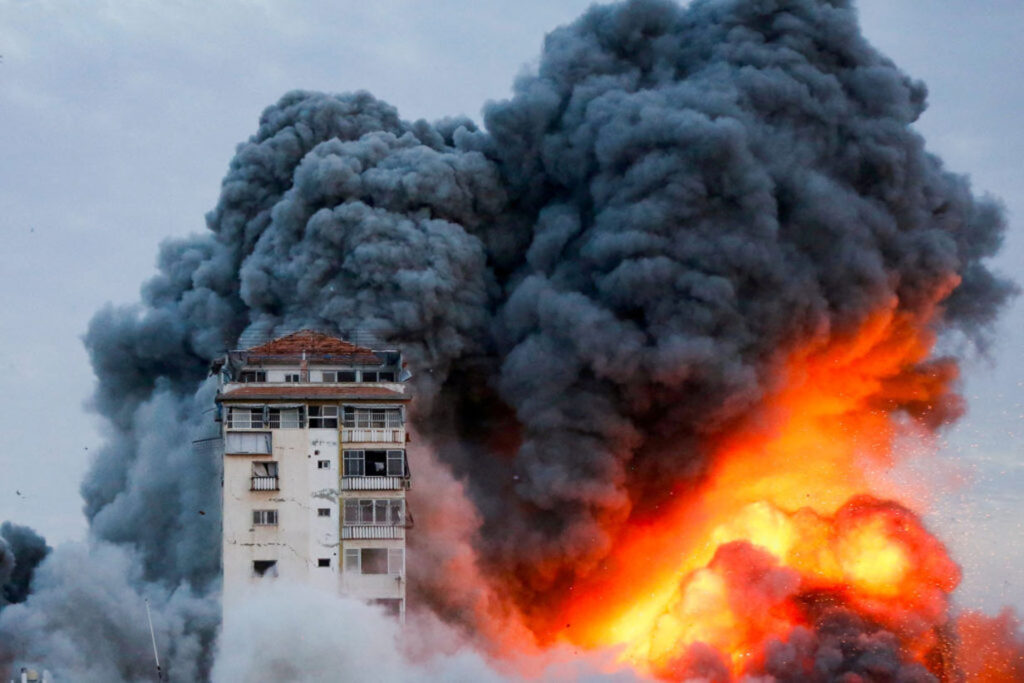The relative calm that has held in Israel since 1973’s Yom Kippur War was shattered this weekend. Israel’s security cabinet took the harrowing decision to officially declare war, an action prompted by an unprecedented surprise attack by Hamas militants. Prime Minister Benjamin Netanyahu had already signaled the intensity of the situation on Saturday, announcing that Israel was “at war”.
The nightmare began with over 3,500 rockets raining down on Israeli residential areas, originating from the Gaza Strip. This deadly barrage resulted in the tragic death of 600 Israelis and injuries to at least 2,000 more. Amidst the chaos, Hamas also managed to take dozens of hostages within Gaza, with the Israeli military gearing up for engagement. The event marked the deadliest attack on Israel in decades.
Former South Carolina Gov. Nikki Haley added fuel to the fire of controversy by criticizing Secretary of State Tony Blinken. Haley accused him of downplaying a potential link between the sudden aggression from Hamas and the $6 billion in funding recently released to Iran. Blinken maintained that there was no evidence of Iran supporting the attack, emphasizing that the funds could not have contributed to terrorism. Yet, Haley countered on “Meet the Press”, noting the dangers of underestimating the movement of money among entities that harbor ill will towards both Israel and the United States.
Adding complexity to the geopolitical dynamics, Hamas revealed that Iranian President Ebrahim Raisi had commended the group’s assault on Israel during a phone call with its leader, Ismail Haniyeh. Though Iran’s state-run news did confirm the call, they refrained from detailing the conversation. Later, Raisi declared Iran’s backing of the Palestinian nation’s “legitimate defense,” assigning blame to Israel and its allies for the region’s jeopardized security.
In the midst of the turmoil, the streets of southern Israel became a battlefield as Israeli soldiers clashed with Hamas fighters. With this conflict came a surge in casualties; more than 300 have been killed in Gaza while around 600 were killed in Israel. The dire situation escalated as Israel exchanged strikes with Lebanon’s Hezbollah militant group, sparking concerns about a wider conflict.
Israel’s response was swift and decisive. Israel’s retaliation was swift. Netanyahu made his intentions clear: “Hamas will pay an unprecedented price. This war will take time. It will be difficult.” Retaliation strikes saw Gaza’s buildings leveled, and in northern Israel, strikes were exchanged with Lebanon’s Hezbollah militant group, escalating fears of an even broader conflict.
Both civilians and soldiers paid a devastating price in this sudden onslaught. Reports indicate that at least 600 were killed in Israel, with another 300 in Gaza. The attacks disrupted life in Israel on a scale the country hasn’t witnessed in decades.
To add to the turmoil, two Israeli tourists were killed in neighboring Egypt, revealing the deep-seated anti-Israel sentiment present even in nations that have long since brokered peace with Israel.
This sudden upsurge in violence has the world on edge. Many fear that what started as a surprise attack could evolve into a long-drawn conflict, with the potential to involve other Middle Eastern nations. Israeli TV channels and media outlets are filled with grief-stricken stories from families who have lost loved ones, and many still hope for a swift resolution.
Israeli Prime Minister Benjamin Netanyahu has asserted that Israel’s military strength will be fully employed to decimate Hamas’ capabilities, even as the Hamas leadership prepares for a drawn-out confrontation. They are quoted saying, “We are prepared for all options, including all-out war.”
World leaders are closely watching the volatile situation. President Joe Biden expressed that the U.S. “stands with the people of Israel in the face of these terrorist assaults,” affirming Israel’s right to self-defense.
With the stakes so high and peace hanging in the balance, the global community hopes for a swift end to hostilities and a return to negotiations and understanding.
